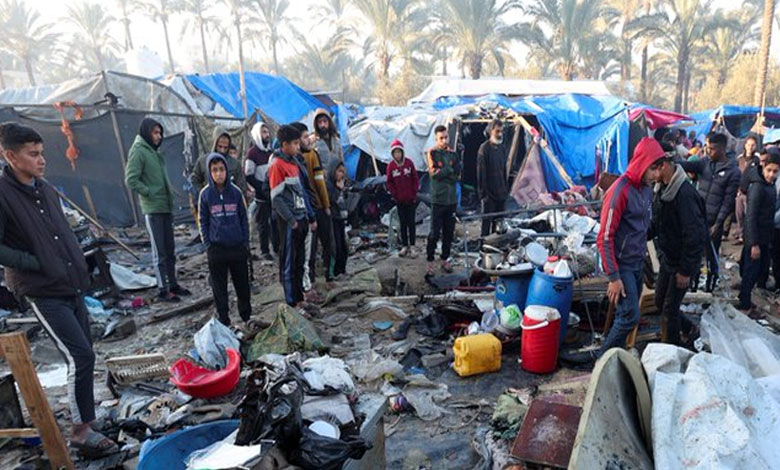UN Humanitarians Prepare Larger Gaza Aid Pipeline Amid Impending Ceasefires
UN humanitarians, along with their partners, are mobilizing supplies to create a broader pipeline of aid and commercial goods into Gaza with the anticipated implementation of a long-sought ceasefire.

United Nations: UN humanitarians, along with their partners, are mobilizing supplies to create a broader pipeline of aid and commercial goods into Gaza with the anticipated implementation of a long-sought ceasefire.
Table of Contents
Expanding Aid and Cash Delivery
The UN Office for the Coordination of Humanitarian Affairs (OCHA) stated that efforts are also underway to explore the delivery of cash to those in need, allowing people to utilize commercial goods and reducing their reliance on aid. Relief organizations aim to reach hundreds of thousands of people in need of basic shelters, provided that access to necessary supplies can be secured.
Also Read: Legend 90 League to Kick Off from February 6 in Raipur
WHO Mission Delivers Critical Supplies
The World Health Organization (WHO) reported that a mission successfully reached the fuel-deprived Al-Awda Hospital in North Gaza on Wednesday. The team delivered 5,000 liters of fuel, food parcels, bottled water, winter clothing, and vaccines. Two critically ill patients and their companions were moved to Al-Shifa Hospital in Gaza City.
WHO also noted that 33 patients, along with around 30 companions, remained at Al-Awda Hospital, which continues to face extreme challenges in terms of access and safety for both patients and staff. During the mission, a bullet struck an ambulance from the Palestine Red Crescent Society, though no injuries were reported. This incident highlights the importance of the ceasefire in allowing safe access to civilians.
UNRWA Faces Significant Challenges
Philippe Lazzarini, commissioner-general of the UN relief agency for Palestinians (UNRWA), briefed the UN Security Council and later met with the press. He called for the full implementation of the ceasefire scheduled for Sunday, stressing the urgent need for rapid, unhindered, and uninterrupted humanitarian access to address the immense suffering in Gaza.
Lazzarini emphasized the difficulties UNRWA faces, particularly following the deaths of more than 200 of its workers over 15 months of conflict. The agency is also under threat of closure by Israel, which has accused it of being infiltrated by Hamas. Lazzarini warned that any reduction in UNRWA’s capacity to operate would be catastrophic, severely weakening the humanitarian response and worsening conditions for the people of Gaza.
The Role of UNRWA in Gaza
Lazzarini rejected the Israeli government’s claims that UNRWA’s services could be transferred to other entities. He argued that UNRWA’s unique ability to provide education and primary healthcare far exceeds any other organization’s capabilities, and that dismantling the agency would disrupt the social fabric of Gaza. The closure of UNRWA without a political process in place would also undermine the ceasefire and hinder Gaza’s recovery.
Lazzarini stressed that any chaotic dismantling of UNRWA would irrevocably harm Palestinians’ lives, erode their trust in the international community, and destabilize efforts for a peaceful resolution. He called for a political transition in Gaza after the ceasefire, including the orderly handover of UNRWA’s services to empowered Palestinian institutions.
